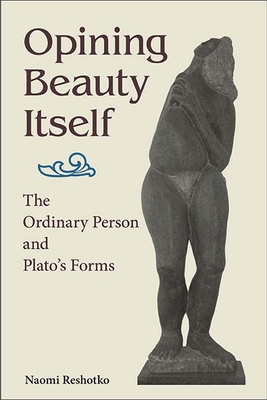Opining Beauty Itself: The Ordinary Person and Plato's Forms

Opining Beauty Itself: The Ordinary Person and Plato's Forms
In Opining Beauty Itself, Naomi Reshotko examines Plato's discussions of epistemological states that fall short of knowledge. Wary that interpretations of Plato's epistemology often omit a detailed analysis of the way he deploys the epistemological concepts that are inferior to, but often prerequisites for, knowledge, Reshotko argues that we must understand these inferior prerequisite states, especially belief (doxa), before we can understand what Plato thought about knowledge. Examining how recollection provides what is required for inquiry, Reshotko argues that recollection does not afford doxa--let alone what contemporary philosophers call 'true belief.' Rather, recollection is responsible for an ability to refer that is a condition for every kind of doxa and for knowledge. Reshotko concludes that Plato regards doxa as the fabric of all the other epistemic states that fall short of knowledge, and develops a comprehensive view of Plato's deployment of doxa that can serve as a foundation for further interpretation of Plato's epistemology. In the process, Reshotko shows that, for Plato, ordinary people do opine the Forms and can make progress toward knowledge of them, even if that knowledge is never achieved.
PRP: 343.09 Lei
Acesta este Pretul Recomandat de Producator. Pretul de vanzare al produsului este afisat mai jos.
308.78Lei
308.78Lei
343.09 LeiLivrare in 2-4 saptamani
Descrierea produsului
In Opining Beauty Itself, Naomi Reshotko examines Plato's discussions of epistemological states that fall short of knowledge. Wary that interpretations of Plato's epistemology often omit a detailed analysis of the way he deploys the epistemological concepts that are inferior to, but often prerequisites for, knowledge, Reshotko argues that we must understand these inferior prerequisite states, especially belief (doxa), before we can understand what Plato thought about knowledge. Examining how recollection provides what is required for inquiry, Reshotko argues that recollection does not afford doxa--let alone what contemporary philosophers call 'true belief.' Rather, recollection is responsible for an ability to refer that is a condition for every kind of doxa and for knowledge. Reshotko concludes that Plato regards doxa as the fabric of all the other epistemic states that fall short of knowledge, and develops a comprehensive view of Plato's deployment of doxa that can serve as a foundation for further interpretation of Plato's epistemology. In the process, Reshotko shows that, for Plato, ordinary people do opine the Forms and can make progress toward knowledge of them, even if that knowledge is never achieved.
Detaliile produsului








